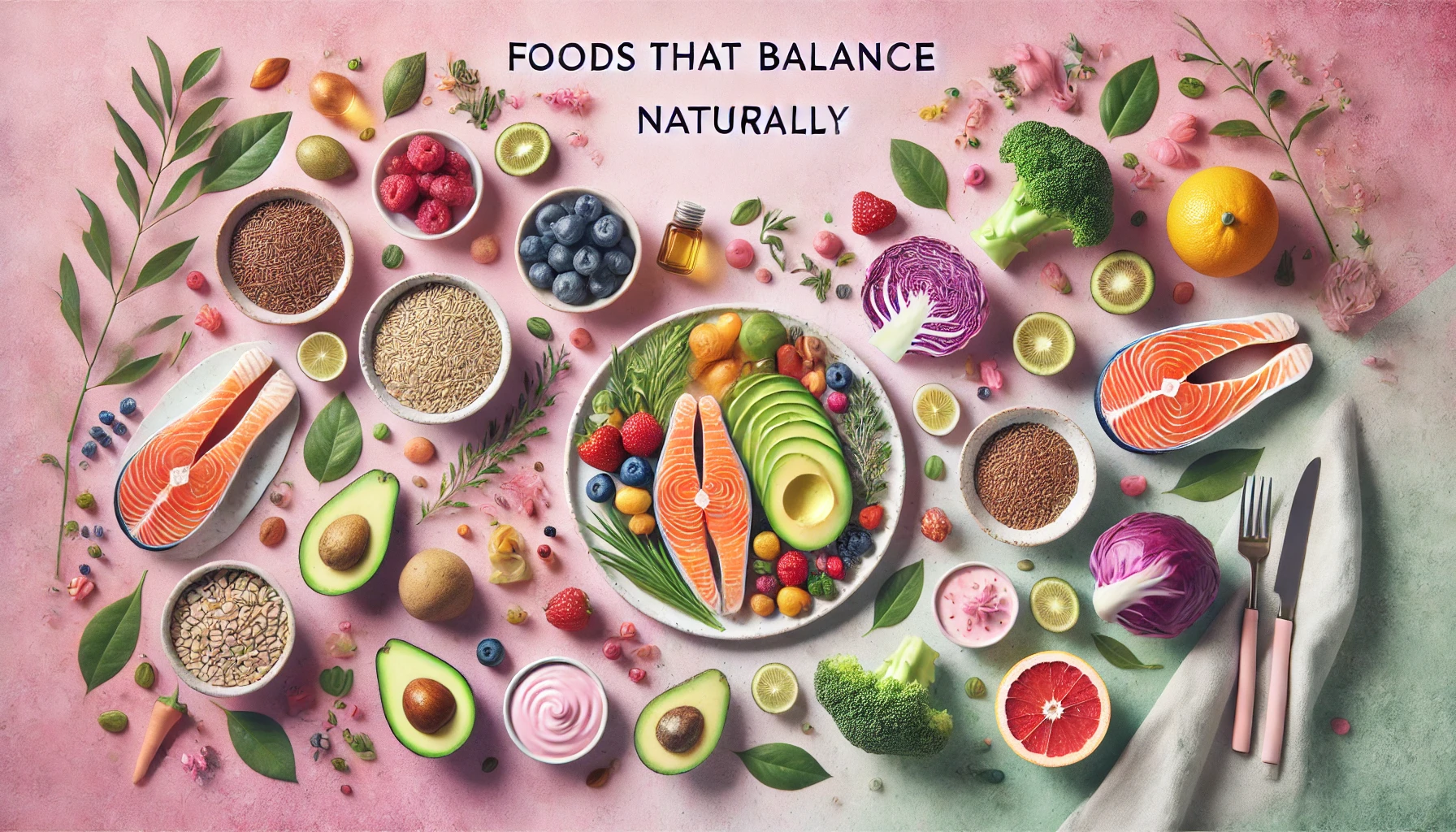Hormones play a vital role in maintaining overall health and well-being in females. From regulating mood and energy to supporting reproductive health, balanced hormones are crucial. What you eat can directly influence your hormonal health. Let’s explore the best foods that balance hormones in females, helping you feel your best naturally.
Why Hormonal Balance Matters for Women
Hormones are chemical messengers that affect almost every function in the body, including metabolism, stress response, and reproductive health. An imbalance can lead to issues such as fatigue, weight gain, mood swings, and irregular menstrual cycles. By incorporating hormone-balancing foods into your diet, you can support your body’s natural processes and promote optimal health.
Key Nutrients for Hormonal Health
Certain nutrients are particularly effective at supporting hormonal balance:
- Omega-3 Fatty Acids: Reduce inflammation and support healthy cell membranes.
- Magnesium: Helps regulate cortisol, the stress hormone.
- Vitamin D: Plays a role in hormone production and regulation.
- Fiber: Supports gut health and removes excess hormones from the body.
Top Foods That Balance Hormones in Females
Flaxseeds
Rich in lignans, flaxseeds help balance estrogen levels in the body. They also provide omega-3 fatty acids and fiber, which support overall hormonal health. Add them to smoothies, yogurt, or oatmeal for an easy boost.
Avocados
Avocados are high in healthy fats, which are essential for hormone production. They also contain beta-sitosterol, which can support cortisol balance and regulate stress levels.
Cruciferous Vegetables
Vegetables like broccoli, cauliflower, and kale contain indole-3-carbinol, a compound that helps the body metabolize excess estrogen. Eating these regularly supports liver detoxification and hormonal harmony.
Salmon
Salmon is a powerhouse of omega-3 fatty acids, which reduce inflammation and improve cell communication. It’s also a good source of vitamin D, a nutrient crucial for hormonal balance.
Berries
Loaded with antioxidants, berries help fight oxidative stress, a major contributor to hormonal imbalances. Blueberries, strawberries, and raspberries are excellent additions to your diet for their anti-inflammatory properties.
Sweet Potatoes
A rich source of complex carbohydrates, sweet potatoes provide the energy needed for proper hormone production. They also contain vitamin B6, which supports mood regulation.
Chickpeas
Chickpeas are high in zinc, a mineral important for the production of reproductive hormones. They also help regulate blood sugar levels, preventing insulin spikes that can disrupt hormones.
Greek Yogurt
Packed with probiotics, Greek yogurt supports gut health, which is closely tied to hormone regulation. It’s also a good source of calcium and vitamin D, essential for bone health and hormone production.
Walnuts
Walnuts are rich in omega-3s and antioxidants. They help regulate cortisol and support brain health, which is critical for hormone signaling.
Dark Chocolate
High-quality dark chocolate (with at least 70% cacao) can help reduce stress and promote the release of endorphins. It also contains magnesium, which is beneficial for hormone regulation.
Lifestyle Tips to Enhance Hormonal Balance
In addition to eating hormone-balancing foods, consider these lifestyle tips:
- Exercise Regularly: Physical activity helps regulate insulin and cortisol levels.
- Sleep Well: Hormone production and regulation occur during deep sleep.
- Manage Stress: Practice mindfulness or meditation to lower cortisol.
- Stay Hydrated: Proper hydration is essential for hormone transport and detoxification.
FAQs
Hormonal imbalances can result from stress, poor diet, lack of sleep, and environmental toxins.
Consistency is key. You may notice improvements in energy and mood within a few weeks of a balanced diet.
While supplements can support hormonal health, they are not a substitute for a nutrient-rich diet.
Excess caffeine can disrupt cortisol and estrogen levels. Moderation is important.
Processed foods, added sugars, and trans fats can negatively impact hormonal balance.
Yes, balanced hormones improve metabolism and reduce stress-related weight gain.
Conclusion
The connection between diet and hormonal health is undeniable. Incorporating foods that balance hormones in females into your daily routine can lead to better energy, mood, and overall wellness. Whether it’s the omega-3s in salmon, the fiber in flaxseeds, or the antioxidants in berries, these foods provide powerful support for your body’s natural balance. Start your journey to better hormonal health today!
Suggestions:



